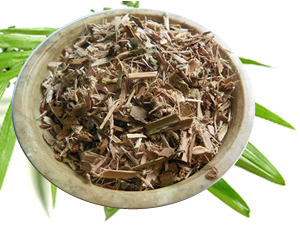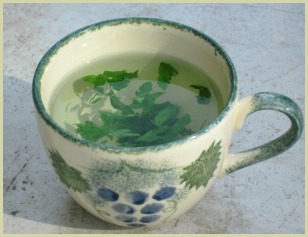Chamomile Tea - Helps relax inflamed airways.
♥Chamomile tea's most well-known benefit is as a sleep aid. It is known for its relaxing and soothing properties and is often taken before bed to promote restful sleep.
♥Chamomile is helpful for a variety of stomach problems. It soothes stomach aches, eases the symptoms of irritable bowel syndrome, promotes elimination, and assists in overall digestion.
♥Menstrual Cramps
The ancient Egyptians used it to soothe menstrual cramps and now science is catching up. One study found that drinking chamomile tea raised urine levels of glycine, a compound that calms muscle spasms. Researchers believe this is why chamomile tea helps menstrual cramps.
♥Cold Fighter
Chamomile has immune boosting properties and helps in the fight against colds due to its antibacterial properties.
♥Diabetes Management Chamomile tea is being studied for its beneficial effects in the management of diabetes. In one study, daily consumption of chamomile tea was found to prevent the progression of diabetic complications and hyperglycemia.
♥Cancer
In-vitro studies show possible protection against several different types of cancer cells.
♦ Precautions
Some people have serious allergic reactions (including anaphylaxis) to chamomile. If you are allergic to other plants in the same family such as daisy, ragweed, aster, chrysanthemum, or marigold you should use caution when using chamomile.
Chamomile should be avoided during pregnancy because it may act as a uterine stimulant and therefore increase the chance of abortion.
People with bleeding disorders or on blood thinners should avoid chamomile, as it contains coumarin and may increase the chance of bleeding.
Elderbery Tea - May help alleviate asthma symptoms.
♥It Reduces Inflammation
Elderberries are a rich source of flavonoids '" particularly anthocyanins '" the compounds that give dark red and purple berries such as blueberries their color. Anthocyanins have anti-inflammatory effects which can help to reduce the pain and inflammation associated with certain diseases such as rheumatoid arthritis. Sipping elderberry tea may be a safer alternative to taking prescription anti-inflammatory medications.
Add three tsp. of dried elderberry flowers into 1/2 cup of boiling water.
Simmer for approximately 10 minutes.
Elecampane Tea - Long regarded in helping treat various respiratory ailments like asthma.
Elecampane tea recipe:
1. Simmer 1-2 teaspoons of dried elecampane root for 5 minutes.
2. Strain and drink
Eucalyptus Tea
Natural Anti-Inflammatory Scientific research suggests that the oil extracted from eucalyptus tree leaves has anti-inflammatory properties that may be applicable for those suffering from asthma and other steroid-sensitive disorders as a viable long-term therapy. Dried eucalyptus tea- leaves offer a mild method of ingesting these beneficial properties. One study published in the March 2003 "Respiratory Medical Journal" noted that the findings of a double-blind placebo controlled trial deduced that eucalyptol, a constituent of eucalyptus oil, is a useful mucolytic agent in upper and lower airway diseases, able to aid in dissolving mucus.
♦Here’s the thing about Eucalyptus. It is considered toxic yet beneficial at once. It’s in many creams and cough drops but in large quantities it’s too much. You really want to keep your cats and dogs and children away from it the most. And enjoy it occasionally in a brew.
Ingredients
4 Eucalyptus leaves torn
2 cups water
Instructions
Wash the eucalyptus leaves and place them in a pot with water and bring to a boil.
Turn off the heat and let them steep for 15 minutes. Reheat if necessary and strain into a cup.
Ginger Tea
Helps minimize symptoms of asthma and other respiratory ailments.













